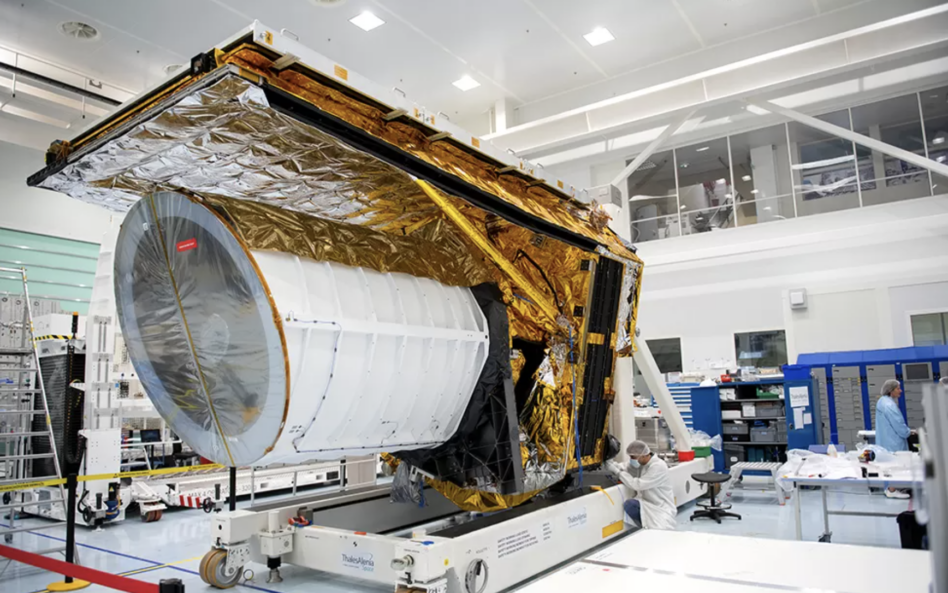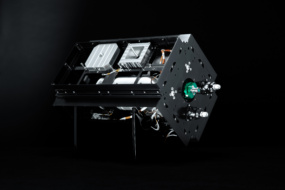Euclid, ESA’s dark energy surveyor satellite, is slated to launch July 1 aboard a Falcon 9 rocket, the space agency announced this week.
Ministry of magic: The spacecraft, named after the Greek mathematician Euclid of Alexandria, will map the cosmos in 3D and study how dark energy shapes the universe. Scientists hope the data will unlock secrets of the universe’s most mysterious and abundant matter.
The dark arts: In recent years, scientists have observed the universe accelerating its expansion, which would run counter to our current understanding of gravity and physics. This strange phenomenon seems to be the work of a shadowy force, which scientists aptly call dark energy.
We know only a few things about dark energy:
- Dark energy and matter make up a whopping 95% of the universe.
- The force does not interact with light—hence the name dark—making it difficult for Earthlings to detect.
- Dark energy plays an integral role in forming and structuring galaxies.
Platform 9 ¾: A Falcon 9 will deploy Euclid to a halo trajectory around the Sun-Earth Lagrange point 2 (L2), accompanying JWST. At a distance of ~1.5M km beyond Earth’s orbit, it will take optical and near-infrared images of billions of galaxies across a third of the sky.





